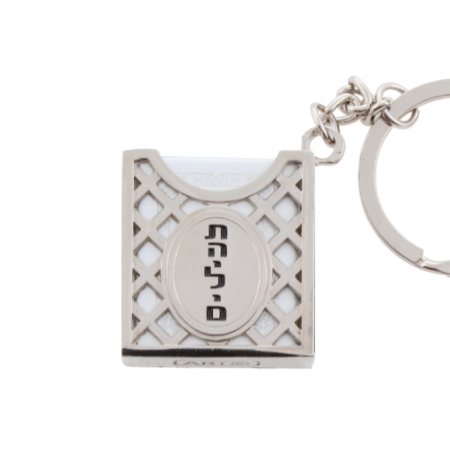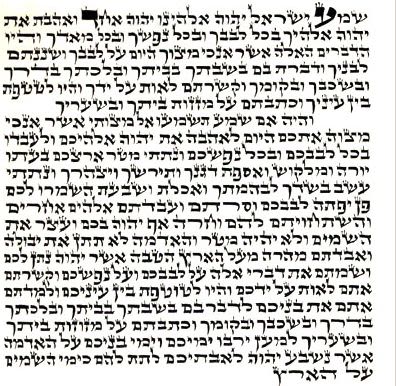
Ki Tavo: Birthdays-Mitzva or Not?
The Gemara teaches that the moment before a baby is born, an angel administers an oath and says, “Be righteous and don't be evil”...

“Today, Hashem your G-d commands you to uphold these laws.” (Deuteronomy 26:16).
Mrs. Heller was new in the neighborhood. She and her husband had become observant Jews after their marriage, but now that their children were reaching school age, they had to relocate into a strongly religious area with an availability of outstanding Torah schools. When Chani, her oldest daughter, was about to have her sixth birthday, Mrs. Heller invited a few of the neighboring little girls to a birthday party for Chani. One of the mothers, a big stern-faced woman whose jaw would probably crack if she ever smiled, protested: “Birthday parties are not a Jewish custom; I realize that you’re new here, but it’s not something that’s done here.” Mrs. Heller was devastated. No birthday parties? What happened to the joy of Judaism? She almost cancelled the party until Hashem gave her the idea to write me an email an ask my opinion.
I answered Mrs. Heller that my grandchildren learn in no-compromise Yiddish-speaking Chassidic schools here in Israel. Those of elementary-school age, both boys and girls, all celebrate their birthdays with a little party in the classroom, with the approval and encouragement of the teachers. I told her to speak to Chani’s teacher and inquire if they do the same. She did. Chani’s teacher happily made a little party for Chani’s birthday and Mrs. Heller made a family party at home. She was delighted and she regained her  faith in the joy of Judaism.
faith in the joy of Judaism.
After answering Mrs. Heller, Hashem gave me a marvelous thought. Would you believe that celebrating a person’s birthday is a mitzva right out of the Torah? I’ll prove it to you:
Commentating on the above-mentioned Torah passage, Rashi says that the meaning of “today” is that our daily observance of Torah should be fresh and exciting as the very day that we were commanded on Mount Sinai, in other words, the Sixth of Sivan – Shavuot – when we received the Torah. Remembering this day is one of the 613 mitzvoth of Torah.[1] This was the day when the Jewish People became a nation, for this is the day that we not only received the Torah but were sworn to uphold it.
The Gemara teaches[2] that the moment before a baby is born, an angel administers an oath and says, “Be righteous and don’t be evil.” The baby swears and a split second later, emerges into this world. The Gemara asks an interesting question: why make the baby swear? We already made a collective oath on Mount Sinai!
Rabbi Mesullem Finklestein osb”m gives a beautifully simple answer to the Gemara’s question[3]: the oath on Mount Sinai was administered to all the Jewish souls, but most of them still lacked bodies. The oath that is administered when the baby is born occurs when the body and soul are fully coupled.
With the above in mind, we have two oaths in Judaism: the first is the collective oath on Mount Sinai. The second is the individual oath when the baby is born. That way, there can be no excuses on Judgment Day; the body cannot maintain that the laws of Torah don’t obligate it, for the body swore together with the soul. This is like the classic example of the blind man and the man with no legs who were hungry; the man with no legs told the blind man, “Put me on your shoulders and I’ll guide you to the orchard. There, we can both eat our fill of fresh fruit.” That’s what they did but the watchman caught them in the act. The two were hauled into court and each tried to blame the other, but to no avail: the judge convicted both for stealing. In like manner, the body and the soul can’t throw responsibility at each other – they’re in this world together and are liable for everything they do.
We learned that the day of our collective oath on Mount Sinai – our national birthday – is a day that the Torah commands us to remember. If so, then according to Torah logic – klal v’prat, the general and the particular – each person’s individual birthday, the day of his or her individual oath when they came into this world, is also a day that we should remember, for it’s a most special day when Hashem decided to send your exquisite soul down here to perform its vital mission. As such, it’s a mitzva to commemorate your birthday!
While birthday parties are fine for children, our birthdays should be a special day when we contemplate our oath and resolve to be righteous and to avoid evil. This is a most opportune day for introspection. Have a happy birthday, whenever it is.










Tell us what you think!
Thank you for your comment!
It will be published after approval by the Editor.